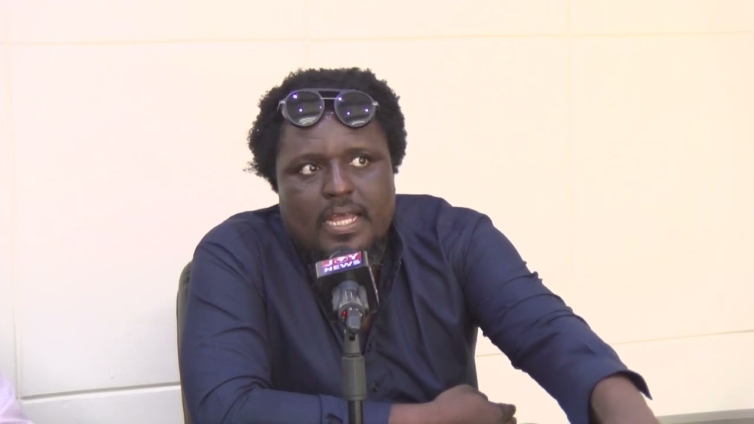Ghanaian multi-disciplinary creative, Nii Mantse Aryeequaye, has spoken about a documentary on hiplife he produced in 2008.
The celebrated voice-over artiste and the Founder of the Chalewote Street Art Festival made the revelation on Joy FM's Showbiz A-Z.
"I shot a whole documentary on hiplife. I started in 2001 and finished in 2008. We had a private release. It's called 'Rhythm Rising'," he said.
While considering re-editing and re-releasing the 200hours of tape, he indicated that the production had a lot of the contributors of the genre who emerged around that time.
"Everybody that was within the hiplife community between 2001 and 2008 is in there. But of course, the music has transformed after he had a great opportunity with azonto and we let it slip. But within cultural production, Ghana has momentum now. So now, we need to find the right spots, and propel oursleves forward," he said.
His comment comes at the time the originator of hiplife, Reggie Rockstone, has announced the 30th anniversary celebration for the genre.
On the back of the celebration, most hiplife lovers have re-ignited the conversation on the lack of a comprehensive documentary on the genre. Projects on hiplife produced by others in the past received heavy criticism for not telling the true story.
In February 2023, Quophi Okyeame, one of the pioneers of the genre, after watching BBC’s documentary on hiplife, described it as misleading and non-factual.
“I watched this Hiplife documentary on YouTube yesterday which is produced by BBC and now fully understand why HIPLIFE IS DEAD. The 30 minutes plus presentation lacks the facts and is very misleading. Apuuu!!! Wei,” he wrote on Twitter.
A lot of Ghanaians also expressed their angst at how Ayo Shonaiya told the hiplife story in his Netflix documentary series 'Afrobeats: The Backstory' in 2022. They felt a lot of the facts were distorted.
Hiplife is a Ghanaian music genre that fuses Ghanaian culture and hip hop. The brand name was originated by Reggie Rockstone in 1994. Prior to birth of the genre, some artistes like Talking Drums and Mahony P were doing similar style but did not call their music hiplife.
The genre became the staple of music in Ghana particularly between 2000 and 2015. Although some Ghanaian artistes still perform hiplife, the emergence of Afrobeats and other contemporary music forms seems to have doused its prominence.
That notwithstanding, it is estimated that hiplife has contributed immensely to Ghanaian pop culture, providing employment for thousands of people.
Latest Stories
-
NPA Fraud Case: Mustapha Hamid, co-accused granted GH¢2m bail each
4 minutes -
You have a responsibility to plan your retirement seriously – EDC’s Paul Mantey
7 minutes -
Lands Commission to decentralise services nationwide by year-end, says Minister
9 minutes -
Minerals Commission Act 85% complete in sweeping reform for equity and sustainability
19 minutes -
ICU-Ghana women’s wing holds 6th National Delegates’ Conference
20 minutes -
907 of 1,278 small-scale mining licences under review for revocation – Lands Minister
24 minutes -
Newly sworn-in MP for Ablekuma North, Ewurabena Aubynn appointed to serve on GSA Board
25 minutes -
55 small-scale mining licences revoked, 907 under review – Lands Minister
31 minutes -
John Dumelo donates 500 bags of rice to UG
31 minutes -
Forestry Commission reclaims all nine red-zoned forest reserves – Lands Minister
35 minutes -
Sarkodie hails ‘The Volta Regime’ by Edem as one of Ghana’s greatest albums
42 minutes -
1,200 excavators impounded at Tema port pending validation – Lands Minister
43 minutes -
Four Africans take part in FIFA Elite Performance Coach Mentorship Programme
47 minutes -
New $250 US Visa Integrity Fee undermines diplomatic fairness for Ghanaians
48 minutes -
US Olympic & Paralympic Committee bars transgender women from competing in women’s sports
53 minutes

